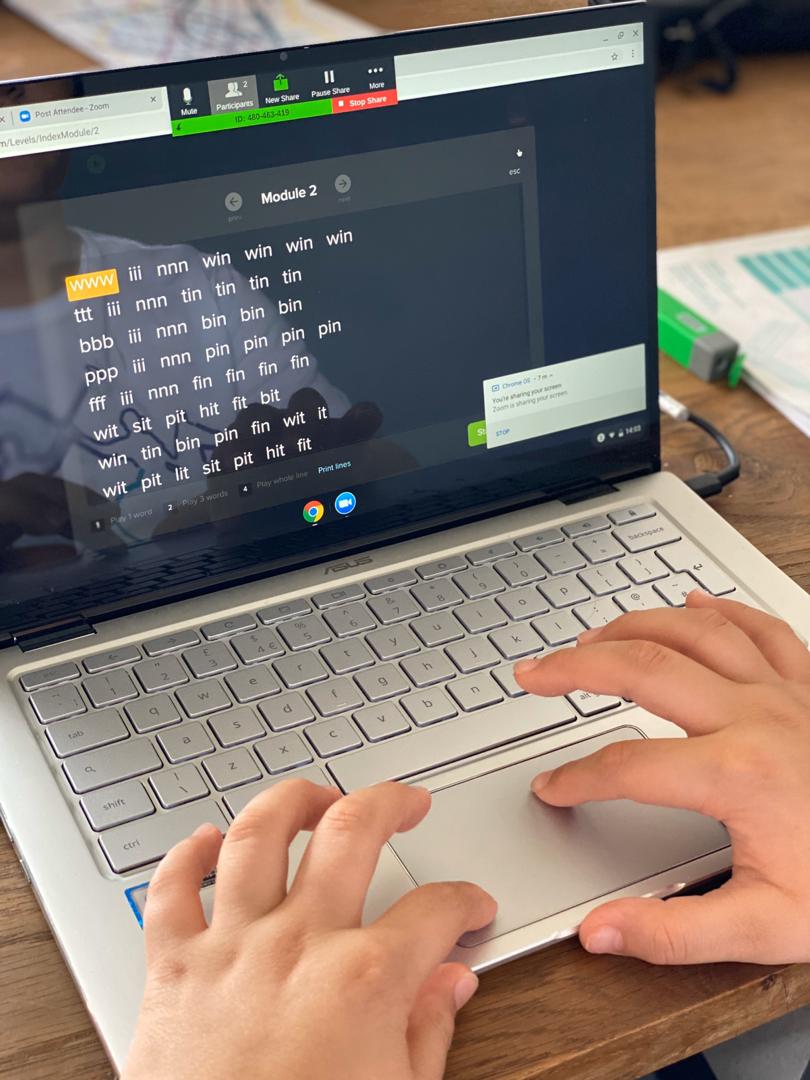
Introduction
The uncertainties of recent times have made the use of virtual learning tools imperative in our educational planning and delivery. Issues of natural disasters, cyber threat amongst others call for strong virtual learning measures and critically in these times.
Truly, nobody knows how long the issue of CONVID-19 will go on for but as they say ‘life must go on’. It is therefore vital we inculcate into our students one of the key soft skills of resilience in the face of adversity.
Our Personalised Learning resolve at ARIS
At ARIS, we have a proactive and robust system to continue unabated with our usual committed support for all our students through normal school time and periods of emergency and difficulty.
The understanding that a one-size fits all virtual learning approach is not the best fit, helps us to incorporate a strong personalised learning strategy to our content, planning, pedagogical approaches and delivery.
THE COVID-19 Personalised Learning Plan
The School has continued to support our students during these challenging times with the following strategies below:
PULL-OUT SESSIONS
The students on pull-out sessions continue to access their uninterrupted sessions via google classroom and (or) Zoom. Our dedicated facilitators and support staff have used the virtual learning tools to work one-one with students and enhanced their learning.
ONE-ONE SESSIONS
Students on the one-one support plan continue to receive their service through the resilience of staff and use of virtual learning tools such as google classroom and Zoom.
IN CLASS DIFFERENTIATION
Facilitators and support staff continue to use the in-class differentiation support in lessons using the strategies detailed out in the Personalised Learning Plans.
Through the use of the private(waiting room) settings on Zoom, differentiated learning is still been provided for all students which exhaustive list includes our Gifted and Talented(G&T), Special Educational Needs and Disability(SEND), Students with English as a Second Language (EAL) and those identified as cause for concern.
Facilitators make reference to the list of students and type of needs on our summary SEND register to support their planning and delivery.
Reflective Practice
The Personalised Department (PLD) staff continue to provide their brief report updates on students and classes they are supporting by the end of each day’s virtual classroom experience. Staff regularly reflect on and improve their practices and enhance the overall learning experiences of our students. Through regular collaboration and teamwork, we share best practice to ensure greater efficiency.
Parent Liaison
Our team of staff is constantly in touch with parents through this period to ensure the home-school partnership is effectively harnessed to best support our students.
I was extremely happy to read an email from a parent our team contacted earlier in the week who couldn’t hide a profound joy and gratitude with regards to how she felt her son has been supported and followed up even through these CONVID-19 dark days. My response has been this is the last we do at ARIS.
Again. Through the help of our supportive parents, we have been able to track and follow up on lateness and absenteeism to virtual lessons.
Strategies for maintaining engagement on our virtual learning platforms:
- Communicate regularly with students via google classroom, Zoom and other virtual learning platforms
- Provide opportunities for students to collaborate with peers
- Our expectations of our students are clearly set and communicated
- Gather contact feedback from students to help improve our planning and delivery
General strategies may include but not limited to:
- Differentiation by task
- Differentiation by pace of the lesson
- Differentiation by resources to support different learning styles- Visual, Audio, Audio-Visual and Kinaesthetic amongst others
- Chunking or breaking down of tasks for less able students
- Engagement
- Focused Questioning and other strategies highlighted in the PLPs
Expected Behaviour for Learning (BfL)
Just as any normal school day, we follow our 3-tier behaviour policy as outlined in our School behaviour policy. All low priority behaviour incidents are dealt with by class facilitators and reported on Managebac but NOT made visible to parents, medium priority issues are logged with Heads of Department notified. All high priority incidents are logged and immediately reported to the Leadership Team.
Way forward
It’s imperative at this stage, we are all guided by our core characteristics to make this virtual learning experience worthwhile for all involved.
Responsibility and Respect
Be on time to all virtual lessons
Ensure your outfit is appropriate for video conferencing
Respect the virtual space of others
Be organised and ready for every lesson
Passion and Mindfulness
Have the appropriate equipment for work
Complete all work on google classroom on time
Be mindful about your attitude to work
Collaboration and Communication
Have your hand raised to make a contribution or ask question
Stay on MUTE when teacher is explaining key points
Take turns in talking
Respond promptly to facilitators’ instructions
Reflection and Action
Ensure you have an appropriate profile picture on
Ensure your working environment is NOT disruptive to self and others
If you have younger siblings at home, please ensure you are in a place where they don’t disrupt you and the lesson.
Fingers crossed, we will bounce back stronger together. We shall surely overcome CONVID-19.